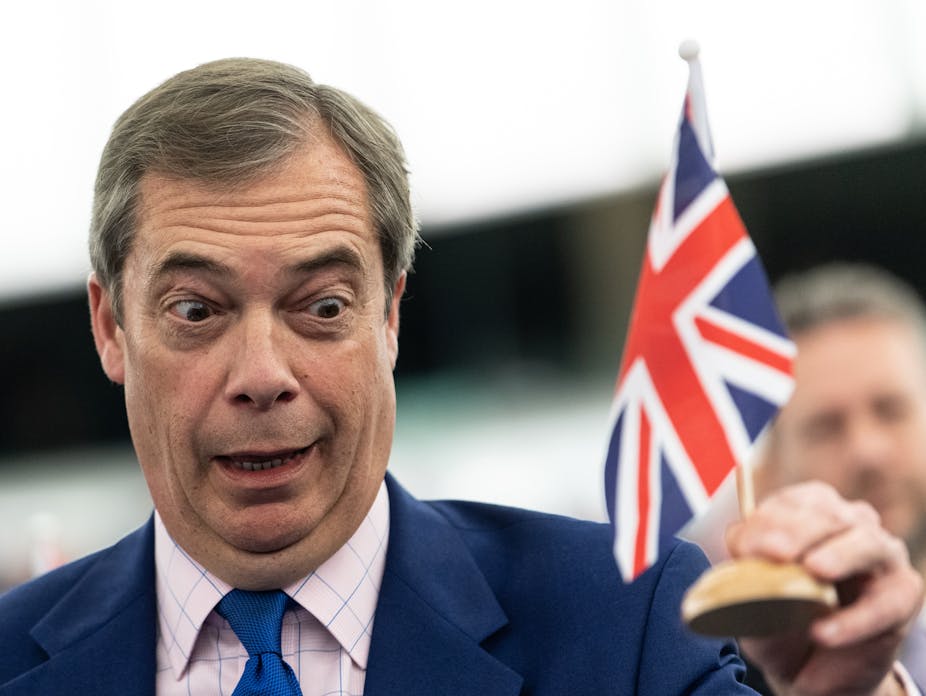It would be amusing but unhealthy at the moment to host a drinking game based on the use of the phrase “constitutional crisis”. The term has been uttered 155 times in parliament since the EU referendum (38 times in 2019 and 20 in the first three weeks of March alone). It has graced not only the pages of The Telegraph, the Independent and The Guardian, but also the speeches of Brexit secretary Stephen Barclay and Labour leader Jeremy Corbyn (when tabling a no-confidence vote in the government before Christmas).
It has been used by Ian Blackford, leader of the Scottish National Party in the Westminster parliament, and – naturally – former UKIP leader and current, if reluctant, member of the European Parliament, Nigel Farage. The latter asserted that the current situation with Brexit is now “the greatest constitutional crisis since the English civil war”.
The British constitution is not tangible, but it is real. Where most constitutions are like the rules on the inside of the lid of a board game, Britain’s is like the understandings governing jumpers-for-goalposts football. Amongst its principles – set out by A.V. Dicey, Walter Bagehot and Thomas Erskine May – are the accountability of ministers; the independence (but subordinacy to statute) of the judiciary; and most importantly the sovereignty of parliament. These rules have been tested nearly to destruction by Brexit.

Ministers with unusual records of failure by any measure remain in office because of the political circumstances; cabinet colleagues dispute openly the best strategy for negotiation with the EU while the prime minister remains in office despite the unprecedentedly heavy defeat of her flagship policy. Meanwhile, courts are required to decide what the respective roles of parliament and the executive are, while the latter expands Henry VIII powers to create legislation without the former’s approval. The role of devolved bodies is disputed and the very union of the UK and its relationship with Ireland is questioned.
Decline and disempowerment
The context of this is a deterioration in political deference and trust going back over decades. It is reflected in turnout, party membership, volatility of allegiance and increased protest at policy and moral scandals. But the actual cause is as easy to identify as it is difficult to correct. The outcome of the 2016 EU referendum required parliament, for the first time ever, to implement a decision from the public with which it neither agreed nor (even where it agreed) could interpret.
Previous referendums in the UK have been sign-offs by a compliant public of policy decisions created through the usual political channels. They have related to housing reforms, devolution or confirming membership of the EEC in 1975. The public sometimes resisted change which the establishment would have liked (as with regional government in 2004 or most mayoralty plans in 2012) but it never destroyed an existing system.
The result of the 2016 vote disempowered parliament from below. It made it impossible for the legislature (supposedly the interpreter of public interest and opinion between elections) to do its job. The executive now insists on implementing “the will of the people” because parliament is reluctant or divided about it.
But the prime minister is too vulnerable to take control of the situation too, hemmed in by an indignant parliament and a party system not designed for Brexit.
Whether referendums are a good idea is one question. Whether they fit into the UK constitution is another. The referendum of 2016 has introduced into the delicate organism of the British constitution an alien bacillus. Whether the constitution can survive by evolving, as it has in the past, is now doubtful.
The UK has lived through constitutional crises before – in 1832 when the great reform act was brought in, in 1911, when the parliament act was brought in to resolve a standoff between the two houses of parliament and, in a curious way, 2010, when the election failed to produce a clear winner – and the system of government has managed to respond to accommodate the tensions involved. Professor J.A.G. Griffith famously said that the British constitution “is what happens”. Today that’s not a complimentary remark.

